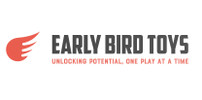
As toddlers begin their journey into language, building a strong vocabulary foundation is crucial for their communication and cognitive development. But where do we start? Understanding the hierarchy of words to teach first can greatly support toddlers in their language acquisition process. Let's explore the stages of vocabulary development and which words to prioritize:
1. Functional Words:
- Functional words are essential for toddlers to navigate their daily routines and express their needs and desires.
- Examples include: help, more, go, stop, open, close, eat, drink, and bye-bye.
- Teaching these words enables toddlers to communicate basic actions and requests effectively.
2. Nouns:
- Nouns represent people, places, and objects in the toddler's immediate environment.
- Start with nouns that are most relevant to the toddler's daily life, such as family members, pets, toys, and everyday objects.
- Examples include: mama, dada, baby, ball, cup, spoon, bed, and car.
- Learning these nouns helps toddlers identify and label items they encounter regularly, fostering comprehension and communication skills.
3. Action Words (Verbs):
- Action words describe activities and movements, allowing toddlers to express actions and intentions.
- Begin with simple action words that correspond to common activities in the toddler's routine.
- Examples include: eat, drink, sleep, play, run, jump, hug, and kiss.
- Introducing action words encourages toddlers to describe their actions and engage in basic conversations about what they are doing.
4. Adjectives:
- Adjectives modify nouns by describing their qualities or characteristics.
- Start with basic adjectives that depict size, color, and emotions, enhancing the toddler's descriptive language skills.
- Examples include: big, small, red, blue, happy, sad, hot, and cold.
- Teaching adjectives allows toddlers to express preferences, make comparisons, and provide more detailed descriptions of people and objects.
5. Prepositions and Spatial Concepts:
- Prepositions indicate the relationship between objects and their positions in space.
- Introduce spatial concepts to help toddlers understand spatial relationships and navigate their surroundings effectively.
- Examples include: in, on, under, over, behind, beside, and between.
- Learning prepositions aids toddlers in describing the location of objects and following directions accurately.
6. Social Words and Polite Expressions:
- Social words and polite expressions are essential for fostering social interactions and manners.
- Teach greetings, expressions of gratitude, and polite requests to promote social communication skills.
- Examples include: please, thank you, sorry, excuse me, and hello.
- Incorporating social words and polite expressions encourages toddlers to engage positively with others and navigate social situations effectively.
By following this hierarchy of words to teach first, parents and caregivers can support toddlers in developing a robust vocabulary foundation. Remember to engage toddlers in meaningful interactions, repeat words frequently, and provide ample opportunities for practice and reinforcement. With patience, consistency, and nurturing guidance, toddlers will gradually expand their vocabulary and thrive in their language development journey.

